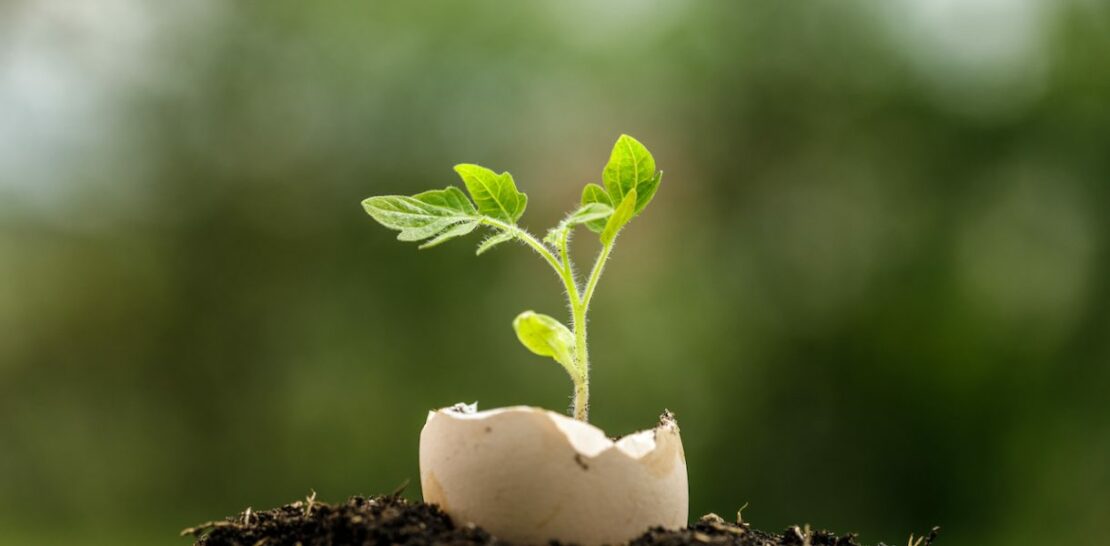Are you tired of throwing away seemingly useless eggshells after whipping up a delicious meal?
What if I told you there’s a way to transform these discarded shells into valuable nutrients for your garden?
Yes, you read that right!
This article will unveil the incredible benefits of using eggshells in your garden, turning them into a worthwhile addition to your compost, soil amendments, and pest control arsenal.
As a specialist of the English language, I am thrilled to present this comprehensive guide that will feed your curiosity and inspire you to try these simple yet effective gardening hacks.
So, without further ado, let’s dive into the world of eggshells and discover how they can help your garden thrive!
The Nutrient-Rich, Calcium-Boosting Powerhouse
First and foremost, it’s essential to understand the nutritional content of eggshells that makes them such a valuable addition to your garden.
Eggshells are composed of approximately 95% calcium carbonate, which is a crucial nutrient for plants – particularly those that produce fruit and flowers. Calcium deficiencies can lead to various issues such as blossom-end rot, weak cell walls, and stunted growth. Calcium is also essential for improving soil structure, promoting healthy root development, and improving water and nutrient uptake. The remaining 5% of an eggshell consists of other valuable minerals such as magnesium, potassium, and phosphorus, all of which contribute to the overall health and productivity of your garden.
So how can you harness the power of these nutrient-packed shells? There are a few easy ways:
- Composting: Simply crush the eggshells and add them to your compost pile. They will break down over time, slowly releasing their nutrients and enriching the compost, which can then be used to nourish your plants.
- Soil amendment: Finely grind the eggshells using a coffee grinder or mortar and pestle, and sprinkle the resulting powder around the base of your plants or mix it into the soil. This will provide a slow-release source of calcium and other essential nutrients.
- Calcium tea: Steep crushed eggshells in a gallon of water for a few days, then strain and use the resulting “tea” to water your plants. This provides a more immediate dose of calcium to plants in need.
Slugs and Snails Beware: Eggshells as a Natural Pest Deterrent
Aside from their nutrient-rich composition, eggshells also possess an innate ability to deter certain pests from wreaking havoc in your garden.
The sharp edges of crushed eggshells can act as a physical barrier and irritant to soft-bodied pests such as slugs and snails. When these pests come into contact with the jagged fragments, they experience discomfort and are discouraged from crossing the barrier. This simple but effective method can protect your delicate seedlings and prized plants from being devoured by these garden nuisances.
To implement this eco-friendly pest control method, follow these steps:
- Rinse and dry the eggshells to remove any residual egg whites or yolks.
- Crush the eggshells into small, jagged pieces. The goal is to create sharp edges that will deter pests, so avoid grinding them too finely.
- Spread a generous layer of crushed eggshells around the base of your plants or in areas where slugs and snails are prevalent. Make sure to create a continuous barrier to be most effective.
- Replace the eggshell barrier as needed, especially after heavy rainfall, to maintain its effectiveness.
Bring on the Birds and Bees: Attracting Wildlife with Eggshells
Finally, let’s explore another often-overlooked benefit of using eggshells in your garden: attracting beneficial wildlife.
Calcium is not only vital for the growth and development of plants but also for many species of birds and insects. Providing a source of calcium in your garden can help to support the local ecosystem and attract beneficial wildlife, such as pollinators and natural pest controllers, that can further contribute to the health and productivity of your garden.
Here are a couple of ways to put those eggshells to good use in attracting wildlife:
- For birds: Crush the eggshells and mix them with birdseed in a bird feeder. Birds such as robins, sparrows, and bluebirds require calcium to help with egg production and bone development, making eggshells an excellent supplement to their diet. Placing a bird feeder in your garden not only supports these avian friends but also encourages them to visit your garden more frequently, where they can help control insect pests and assist in pollination.
- For bees: Bees also require calcium for various physiological processes, and offering a calcium-rich source can attract these vital pollinators to your garden. To create a bee-friendly calcium source, simply mix finely ground eggshells with a bit of water and place the mixture in a shallow dish or container. Place this container near your flowering plants, and watch as the bees come to enjoy the calcium-rich treat.
In summary, eggshells offer a myriad of benefits to your garden, from boosting the nutrient content of your soil and compost to providing an effective, natural pest deterrent and attracting beneficial wildlife. With these simple yet impactful methods, you can transform your discarded eggshells into valuable assets for your garden, helping it to thrive and flourish. So the next time you crack open an egg, think twice before tossing those shells into the trash – your garden will thank you for it!




